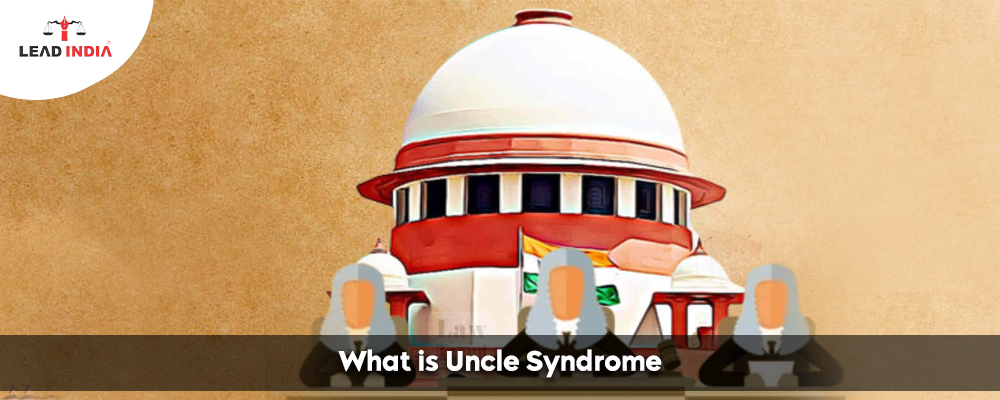The Law Commission of India in its 230th report stressed the issue of uncle syndrome and stated that it needs to be addressed to maintain fairness and impartiality in the judiciary. It recommended that the Judges of the High Court should not be appointed to such High Courts where their relatives practice. There might be the possibility of potential conflicts of interest.
Uncle Syndrome
It is a preferential treatment given to an individual who has an existing relationship with existing judges or influential figures in the judicial system. This can be seen in several ways:
- If a person has a close relative who is a judge or a famous advocate then there are chances that he may be appointed to a judicial position. This is discrimination against the person who is meritorious and qualified for the position.
- The person who has political connections has many chances that they may find it easier to be appointed to judicial positions. Therefore, the connection between the judiciary and politics can increase this problem.
- The collegium system, which is prevalent in India for the appointment of judges, is criticized for this syndrome. The collegium consists of senior judges of the court who recommend the candidates for the position. Such a system is the reason for such a syndrome as it is argued that often judges recommend the persons from their connections which ultimately sidelines the deserving candidates who do not have such connections.
Need A Legal Advice
The internet is not a lawyer and neither are you. Talk to a real lawyer about your legal issue

Impact of this syndrome
This syndrome is responsible for reducing public trust in the judiciary. The Judiciary might in the eyes of people become biased or untrustworthy. It even violates the rule of law. Such an incident in the judiciary is a worrisome situation. The judiciary is an independent body that was established as an exchequer of the legislature and the executive. That is why it is important that the judiciary should remain independent and bias-free.
- The major impact of this syndrome is the diminishing of public trust. The reduction in public trust in the judiciary can lead to dissatisfaction among the people in the country.
- This even leads to the effects of judicial independence. That person who comes to such a position with such a connection often grants judgment in favor of such persons who have connections with them. This affects the judicial independence and the decision-making of the judges.
- This affects the candidates who are meritorious. Even the judiciary is also deprived of such talented candidates as only those with such connections are able to secure such positions.
- There should be some legal reforms in the appointment of judges. This can help in mitigating the influence of people who have connections. The criteria and the qualifications for the appointment of candidates should be publicized.
Union Law Minister Kiren Rijiju said that the collegium system is the reason behind this and suggested that there should be a framework for this problem. He argued that the collegium system favors the candidate who has connections and thus limits the opportunities for deserving candidates.
The need for reform is also highlighted by the legal organizations and advocacy groups. It is important to address this issue so that public confidence can be restored in the judiciary.
This syndrome affects the integrity of the judiciary. It is important that the judiciary should remain transparent so that justice can be delivered properly. It is important to address this syndrome so that such a legal system can be established that is fair and has faith in the people of the country.
Lead India offers free legal advice, digital information, and other legal assistance. We offer a forum where you may talk with a lawyer and ask legal questions. Lead India’s lawyers are here to assist you with any legal issues. Lead India’s attorneys are available to help you with any legal matters. Lead India not only offers online legal support, but it also enables users to ask free specialized questions.





 Talk to a Lawyer
Talk to a Lawyer